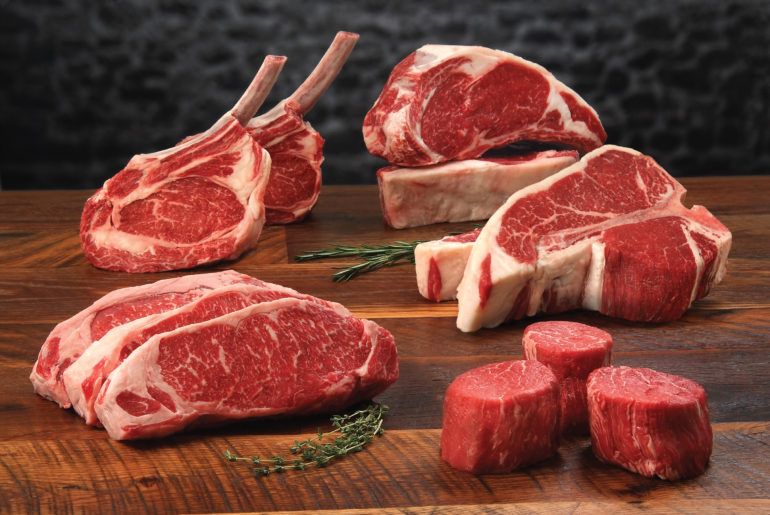Food safety is a crucial aspect of the meat industry. According to the Centers for Disease Control and Prevention (CDC), approximately 1 in 6 Americans (about 48 million people) get sick each year from contaminated food, with over 3,000 fatalities reported. To reduce these risks, strict regulations and safety protocols have been established for meat suppliers across the United States.
In the Bay Area, meat suppliers face additional regulatory challenges due to the high standards set by both state and local governments. Understanding how these suppliers handle food safety can give consumers confidence in the quality of the meat products they purchase.
Key Food Safety Regulations for Meat Suppliers
Meat suppliers in the Bay Area must follow regulations set by various agencies, including:
- USDA (United States Department of Agriculture)
This federal agency regulates meat, poultry, and egg products. They ensure that all meat suppliers comply with national food safety standards, such as the Federal Meat Inspection Act.
- FSIS (Food Safety and Inspection Service)
A branch of the USDA, FSIS conducts regular inspections and enforces policies related to meat and poultry safety. All meat-processing facilities must pass their inspections to continue operating.
- California Department of Public Health (CDPH)
The CDPH implements food safety laws specific to the state of California, which often go beyond federal requirements to provide extra protection for consumers.
- Local County Health Departments
In the Bay Area, local health departments perform additional inspections and oversee compliance with local regulations.
How Meat Suppliers Bay Area Ensure Food Safety
Meat Suppliers Bay Area follow a rigorous process to ensure the safety of their products. Here’s how they do it:
1. Implementing HACCP Plans
Hazard Analysis and Critical Control Point (HACCP) is a systematic approach to food safety. It involves identifying potential hazards in the production process and establishing critical control points to prevent contamination.
Each supplier must create a HACCP plan tailored to their facility, which outlines how they handle, process, and store meat. This plan is reviewed and approved by regulatory agencies like the USDA or CDPH.
2. Regular Inspections and Audits
Meat suppliers undergo regular inspections and audits conducted by the USDA and local health departments. During these inspections, regulators check for:
- Proper sanitation procedures.
- Compliance with HACCP plans.
- Appropriate storage and handling of raw meat.
- Temperature control during storage and transportation.
Any violations can lead to penalties, including temporary closure of the facility until the issues are resolved.
3. Employee Training Programs
Suppliers invest heavily in employee training to ensure that all staff members are knowledgeable about food safety practices. Training includes:
- Proper handwashing and hygiene practices.
- Safe meat handling techniques.
- Use of personal protective equipment (PPE).
- Understanding of the HACCP plan and critical control points.
Well-trained employees reduce the risk of contamination and ensure the facility operates within the required safety standards.
Complying with Bay Area-Specific Regulations
The Bay Area is known for its high standards when it comes to food safety and environmental sustainability. This results in some unique regulations that suppliers must comply with:
1. Sustainable Meat Sourcing
In an effort to promote sustainability, the Bay Area has encouraged meat suppliers to source from farms that follow humane and environmentally friendly practices. Suppliers may be required to provide documentation showing that their meat products come from sustainable sources.
2. Labeling Requirements
Suppliers in the Bay Area must adhere to strict labeling requirements. For example, labels must include information on the source of the meat, expiration dates, and handling instructions. Accurate labeling is critical to maintaining consumer trust and meeting local regulations.
How Suppliers Manage Product Recalls
Despite the best efforts of meat suppliers, product recalls can still occur due to contamination or mislabeling. When this happens, Bay Area suppliers follow a structured recall process to protect consumers:
- Identifying the Affected Product
Suppliers work with the USDA or local health department to identify the specific product affected by the recall.
- Notifying Retailers and Consumers
Once the issue is identified, suppliers quickly notify retailers and issue a public announcement to alert consumers.
- Removing the Product from Shelves
All affected products are removed from store shelves and distribution channels.
- Corrective Actions
The supplier investigates the cause of the recall, corrects the issue, and implements additional safety measures to prevent it from happening again.
The Role of Technology in Food Safety
Modern technology plays a significant role in maintaining food safety. Meat Suppliers Bay Area leverage technology in the following ways:
- Temperature Monitoring Systems
Advanced temperature monitoring systems ensure that meat is stored and transported at the correct temperatures. These systems provide real-time alerts if temperatures move outside the safe range, allowing suppliers to take immediate action.
- Traceability Solutions
Suppliers use traceability software to track meat products from farm to table. This ensures that if there is a contamination issue, the source can be quickly identified, and the problem can be isolated to prevent widespread recalls.
- Automated Sanitation Equipment
Automated equipment for cleaning and sanitation reduces human error and ensures that machinery and workspaces are thoroughly cleaned after each use.
Conclusion
Meat Suppliers Bay Area go above and beyond to ensure their products meet the highest food safety standards. From implementing comprehensive HACCP plans to leveraging technology, these suppliers prioritize consumer safety and regulatory compliance. By understanding the complexities of the food safety landscape, consumers can appreciate the efforts made by local meat suppliers to provide safe, high-quality products. Thank visiting magazinesus.com







